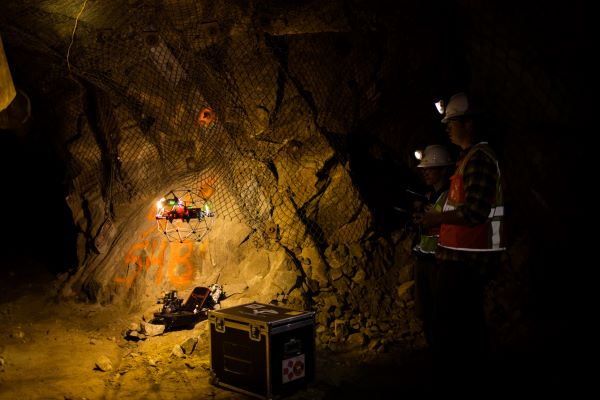There’s still time to sign up for drone classes this semester!

On any given day at Montana Technological University, students utilize drones to expand their knowledge in a number of fields.
“Drone skills are applicable to almost every major at Montana Tech,” said Geological Engineering Professor Dr. Mary MacLaughlin.
The University is home to dozens of drones, all with different capabilities.
There’s SPOT, the Boston Dynamics robot dog helping researchers collect data about critical mineral deposits that may exist in abandoned mines that are inaccessible to humans. There’s a ground drone and flying drone that students designed last year to work together to remediate contaminated mining sites. There are various unmanned aerial drones that range in size from small quadcopters to fixed-wing systems and larger units that carry large payloads like magnetic gradiometers.
Montana Tech has two certificate programs and a number of classes available to students that focus on drone skills. The Unmanned Aerial Systems Development and Analytics graduate certificate and the Unmanned Aerial Systems Applications and Design undergraduate certificate are designed to vastly increase students’ skills and knowledge while minimizing the number of additional credits needed to earn the credentials.
“This program was created because employers requested graduates have drone experience when they hire them,” MacLaughlin said.
The drone certificate programs are 15 credits each. The entry level courses are two 1-credit classes taught on the weekends of September 28-29 and Oct. 5-6 by Jeremy Crowley, director of the Autonomous Aerial Systems Office at the University of Montana. UAS 401 includes all of the information needed for students to register and take the FAA Part 107 Drone Pilot Certification. GeoE 481 teaches students to use Pix4D and focuses on 3-D photogrammetry. Other courses required for the certificate include a number of electives that feature a bit of drone work and are often required already for various degree programs, and opportunities for more advanced tasks, like engineering drones themselves. Seminar courses are 1-hour and feature a variety of speakers who talk about how drones are used to conduct scientific research or for business purposes. In addition, MacLaughlin also holds flight labs for credit that allow students to pilot drones indoors, outdoors and even in the Underground Mine Education Center.
“We want students to have hands-on experience piloting different types of drones,” MacLaughlin said. “We want to give students a wide range of experiences without the expense of having to purchase different drones.”
Students can add drone classes to their schedule through the Registrar’s Office by Sept. 9. Montana Tech’s Drone Club will also be participating in Club Rush on Wednesday, Sept. 4 if students interested in drones want to learn more at a less intensive level. Anyone with questions can contact MacLaughlin at mmaclaughlin@mtech.edu.